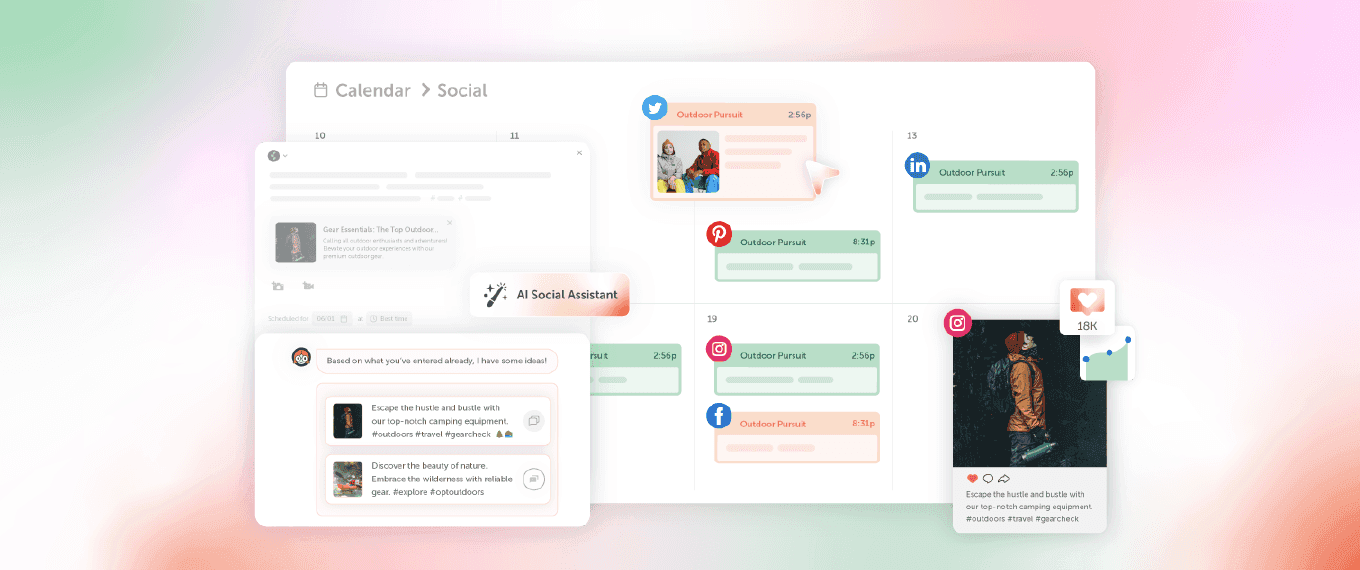The 6 Communication Barriers You Put In Front Of Your Readers
You Prefer The Clever And Obscure
Your goal is clarity, not cleverness. It's hard to resist the urge to be clever, because it feels creative, edgy, different. But readers want clarity. Being clever for the sake of being clever is something only you enjoy, and not your readers. Readers want unique, original, fresh, exciting–but too often clever veers from this and is more about you showing how witty you are. Readers don't want clever, because most of the time clever is confusing. Readers don't want to feel dumb and unintelligent. They don't want to feel like that third person in a conversation who is missing out on all the inside jokes. They don't want to feel as if you are writing to exclude when they don't understand your jargon, your metaphors, or your references to pop culture that you assumed everyone knows. This avoidance of cleverness seems counter-intuitive when we are told to grab onto on trends as a method to get traffic. Capitalize on trends, yes, but use them wisely. Provide explanations and context, without assuming your readers know what you are talking about. Understand that clever trend-based content is not "evergreen" and has a short shelf life.Your goal in writing is one of clarity, not cleverness. Readers want to understand what you write.
Click To Tweet
You Have To Prove How Smart You Are
You may be smart, but your reader doesn't want to feel stupid. What you are trying to do with your content is communicate with your reader so they understand what you want them to understand. You are not writing to impress them. You are writing to empower them, so they leave feeling like the know something new. If you are writing to impress people, stop writing and leave the room. Not a single person there likes you. Writing that is meant to impress people, to show them how smart and talented and wonderful you are, how many amazing things you've done, how cool you might be, how traveled and enlightened you are, is tedious and often preachy. It's the content marketing equivalent of the braggart who makes everyone look at his vacation photos. It is similar to the Dilbert cartoon character known as the Topper, a fellow who always has to be the best of everything. You are writing to teach, to inspire, to make laugh, to encourage, to help. You are not writing to build yourself up or make others feel less about themselves.If you can't explain it to a six year old, you don't understand it yourself. - Albert Einstein
You Confuse Personal With Self-Indulgent
I've seen several blog posts which list self-indulgence as a reason readers don't stick with you, and that's true. We just talked about how you should not seek to impress people. However, the admonition that readers don't care about you or your life, and are only interested in what's in it for them, is not exactly true. It's all about how you go about using your own experiences. In some cases, your personal experiences and personal story are part of what's in it for them, if you handle it right. People are asking what's in it for them, but they will listen to you use personal experiences if they can get there through the path you already took. People want to know, from you, that:- They are not the only ones with this problem.
- They are not the only ones who feel this way.
- They are not the only ones who find something funny/sad/angering/scary.
- That someone like them found a way out, a solution.
- That someone like them found success.
- That someone is listening to them.
You Mistake Informality For Crudeness
Content that is conversational feels more human. I've appreciated the conversational approach to content over the years, and I don't mind slang or even a swear word here or there. There is power in language, and a linguistic slap in the face once in a while is a necessary jolt. Unfortunately, the idea of friendly, casual, and conversational language has become fairly crude.Casual and informal conversation doesn't have to mean crude. #BetterBlogging
Click To Tweet
You Don't Rage Against The Expected
It is very difficult to write something new and unexpected that no one ever has written, and do this three or four times a week. I know this. Sometimes I pull it off, but sometimes I put my best into a post, shake my head, and just accept that while it was a good post, it wasn't all that unique and that I'll try again the next time. You should want to be unique for your reader's sake, not just to stand out from the crowd. Your reader is tired of the same stuff. There is no shortage of blog posts with similar titles promising all kinds of things that get readers to check them out but, sadly, upon reading, have the same tired points and conclusions. The internet is replete with blogs full of promises, exclusives, secrets, and schemes vying for your attention. How disappointing for readers to arrive at a much ballyhooed destination to find nuthin' new.Say something new or don't say anything at all. #BetterBlogging
Click To TweetYou Write For Everything Else First, People Last
There are many things to keep in mind when writing a post. Word count. SEO. Blog category. Niche topic. Keywords. Advertising and affiliate links. And oh yes, people. The moment you stop writing for people first is when your blog starts a downward slide. Finding a way to first and foremost write for other people, and then get everything else to fall into place without usurping that initial goal, is tough. On this blog, we have benchmarks and considerations that need to occur with our posts, but I still have to write for people first. The other considerations must then fit within that. It can be done, but it takes work and time, two things that you won't have if you're more interested in whipping out quick content to fill the blog. My method looks a bit like this. Your routine may differ:- Get an idea. The idea comes first. I pick an idea that people would be interested; it's important that this be the foundation for all that comes next because it is people-centric.
- Do keyword research.
- Write headlines. We have a 25-headlines method. Sometimes I pull it off, sometimes I don't. It is work, especially when you have keywords to keep in mind and you don't want your headline sounding clunky and awkward as you try to get the keywords to fit.
- Put the post on the calendar. Sometimes we have content planning meetings. Other times I plug it into our editorial calendar on my own.
- Write the post. We write longer posts, so while I appreciate people saying to ignore word count and to stop "when you're done" the truth is that if you set the goal at 1200 words, you should hit them. You shouldn't add garbage to hit them. You should plumb the depth of your topic more if need be. I appreciate the brief post, but if you decide to write longer, it can be done. Bloggers must have the writing and research methods to go beyond 600 words without always using the excuse "it was done at 600."
---
I've noticed that, in a very crowded world of content marketing, the worst communication barriers often come from an honest and decent desire of bloggers to stand out from the crowd. That desire isn't wrong, but the way they go about doing it is, sacrificing steady readers for shock, trickery, or bowling them over with sheer quantity, never mind the quality.

